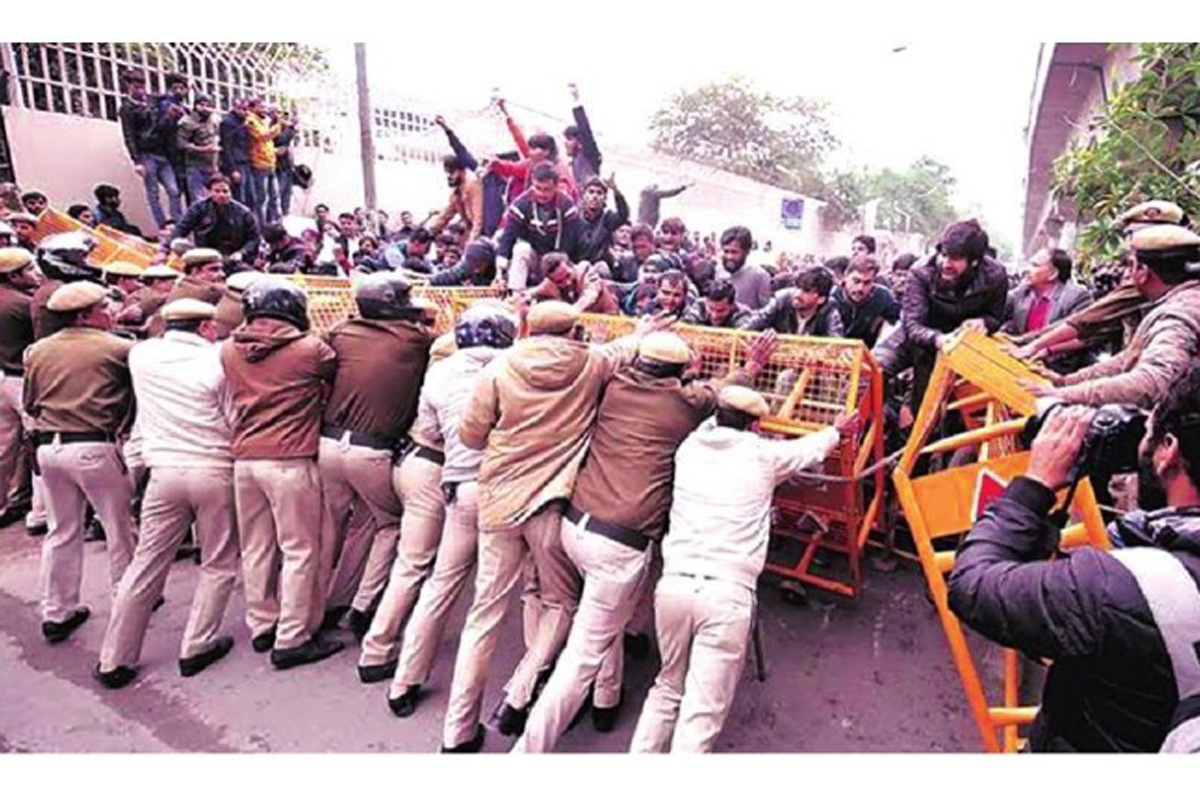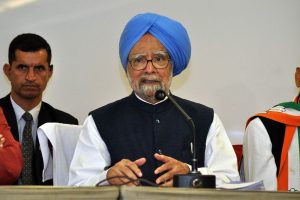Germany was planning war; Italy went against the decision of the League of Nations and attacked Ethiopia; Japan was preparing to do the same to China; civil war had broken out in Spain — the Republican Party clashed with the Fascist general, Franco and Chamberlain had already begun making efforts to get along with Hitler, calling Russia the common enemy. The London Majlis, a student forum consisting of the then scholars of Oxford and Cambridge universities, was caught up in the storm of events.
The deep-rooted hatred for fascism and imperialism overwhelmed all other considerations and members rose to the occasion to prove that students the world over can influence change through action fuelled by awareness. Almost four decades ago, prodemocracy student activists took to the streets at Tiananmen Square in China and were silenced by guns. Indonesia’s streets ran red with students’ blood– they had come out to protest against the economic crisis and corruption.
Advertisement
In 1959, several students, women and children sacrificed themselves in the historic food movement. In 1962, a large section of students cried foul at China being declared as an aggressor in the Sino-Indian war. In 1965, students picketed and persuaded Calcuttans not to pay increased tram fare. Many were arrested. In 1966, there was yet another food movement in protest against the ruling party’s efforts to allow big landowners to hoard foodgrain.
Several students faced police lathi-charge and died in the subsequent firing. However controversial their struggle with the authorities and yet a fundamental democratic right in India and many countries, the world of student protests looks set to stay. In the November 2010 student protests in London, attention from the issues was hijacked by violence towards physical property and police, with demonstrators storming Millbank Tower and defacing public monuments, resulting in arrests.
Police were accused of heavy-handed tactics that trapped thousands in freezing cold – events which saw a teen student undergo three hours of emergency surgery after being beaten with a police baton. In our country, police br utality at student protests is well documented, with the firing of rubber bullets and cane charging a common occurrence. In 2011, students of Delhi University and JNU protested at the violence unleashed by Delhi Police on sleeping supporters in the yoga camp of Ramdev at the Ramlila grounds in Delhi.
The Osmania University campus in Hyderabad became the nerve centre for agitation some time ago over the creation of a new state of Telangana. Arrests were made and the university was under siege as police attempted to foil the students’ indefinite fast. In 2015, what began as a simple protest targeting indifference of authorities towards complaints of molestation inside the campus was blown out of proportion by the Jadavpur University administration. The police were called in to tackle the situation as if they were common criminals. By denying the charge of high-handedness, the VC denuded his position from that of an academic to a cop, thereby losing his moral right to occupy the chair.
The police action against the president of the JNU Students’ Union in 2016 provoked a controversy at the level of political parties, student groups and academics. Delhi police was branded as high handed, vindictive and authoritarian. Evidence suggested that the police overreacted while dealing with JNU students. Of course, the students tended to be rebellious, but they needed to be tackled with restraint. It has been argued that though US had witnessed anti-Vietnam movements in its campuses for nearly ten years yet there was no charge of sedition against any of the student leaders as at JNU.
Recently, the seemingly peaceful protest against the Citizens Amendment Bill in Jamia Millia islamia led to untoward police violence in the campus. Why else were the police overactive to tackle students at the same level as common criminals? There is much to condemn about the police response to the situation arising thereof. Their remarkably high-handed action bears out the general perception that Delhi’s law enforcement authorities generally do go on overdrive. Will the justification of the action that they took having entered the library, washrooms and even girls’ hostels amidst the darkness be probed judiciously?
This is a perhaps more serious crime than the simple protest that the students were making. No permission was taken from the authority before entry to a restive campus and so it would not be easy for the police headquarters to live down the charge that brutality was unleashed in simulated darkness. Did it have to happen this way? We must take a long hard look and ask ourselves how the state that had so vehemently denounced Tiananmen treated its own students as common ruffians.
Surely what happened could be more representative of the ugly face of state repression? It sometimes appears that police action was to a certain extent influenced by extraneous influences. According to the National Police Commission’s recommendation the police should have adequate knowledge about the campuses in their jurisdiction and be acquainted with the inherent problems. This practical suggestion ought to have been followed by the police. Unnecessary interference has got to blur the image of the police in the minds of the people. There is every possibility of witnessing lumpenisation of the moral variety.
The atmosphere became volatile and widespread suspicion about the involvement of outsiders is not wholly unfounded. The students are being reduced to pawns and may even have been assigned a secondary role by off-campus lumpens on either side of the divide. Anarchy may not be far off. And does not such motivation strengthen the ranks of unimaginative petty political leaders driven by factionalism and short sightedness?
How can a society bred on the legacy of Gandhi and Tagore put up with such expressions of state power? There are some who wanted to project all this as just one instance of unrest put down with an iron hand and, in a way, tried to allow the state to flex its muscle. Order and smooth functioning was, in fact, the logic propagated by Hitler. History is not the preserve of the non-adventurous. But neither does it encourage ignorance.
(The writer is former Associate Professor, Department of English, Gurudas College, Kolkata and is presently associated with Rabindra Bharati University)











